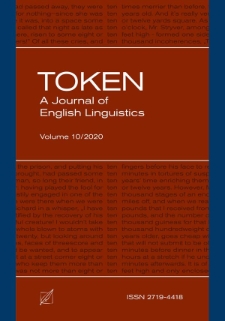Biblioteka Cyfrowa Uniwersytetu Jana Kochanowskiego udostępnia 13 367 obiektów cyfrowych
Obiekt
Tytuł: Terms of reference and discursive representations: A case study with Saddam Hussein in the 1991 Gulf War
Twórca:
Tytuł publikacji grupowej:
Abstrakt:
This study investigates connections between terms of reference and discursive frames using U.S. newspaper reports on the 1991 Gulf War and Iraqi President Saddam Hussein as a case study. Combining results from a quantitative and qualitative analysis of different terms of reference, three discursive frames were identified: The Statesman, The Madman and Our Saddam. The most common discursive frame was of a foreign head of state. Newspapers also included representations that both demonized Saddam Hussein and discussed him in the context of Middle Eastern in-groups. Previous research has highlighted the demonization of Saddam Hussein in news reports during the war, but the findings of this study suggest that an overtly demonizing discursive frame was a minority view. However, its use nonetheless showed lasting impact beyond the end of the military operation. Press reports thus showed more varied and ambivalent representations than previous analyses may have suggested.
Miejsce wydania:
Opis fizyczny:
ISSN:
Wydawca:
Wydawnictwo Uniwersytetu Jana Kochanowskiego w Kielcach
Data wydania:
Identyfikator:
oai:bibliotekacyfrowa.ujk.edu.pl:4262 doi:10.25951/4365
Język:
Jest częścią:
Token : A Journal of English Linguistics
Ma część:
Typ:
Prawa dostępu:
Format:
Kolekcje, do których przypisany jest obiekt:
- Biblioteka Cyfrowa Uniwersytetu Jana Kochanowskiego > Wydawnictwo Uniwersyteckie
- Biblioteka Cyfrowa Uniwersytetu Jana Kochanowskiego > Wydawnictwo Uniwersyteckie > Wydawnictwa ciągłe
- Biblioteka Cyfrowa Uniwersytetu Jana Kochanowskiego > Wydawnictwo Uniwersyteckie > Wydawnictwa ciągłe > "Token : A Journal of English Linguistics"
Data ostatniej modyfikacji:
4 kwi 2025
Data dodania obiektu:
25 lis 2021
Liczba wyświetleń treści obiektu:
90
Liczba wyświetleń treści obiektu w formacie PDF
168
Wszystkie dostępne wersje tego obiektu:
https://bibliotekacyfrowa.ujk.edu.pl/publication/4365

